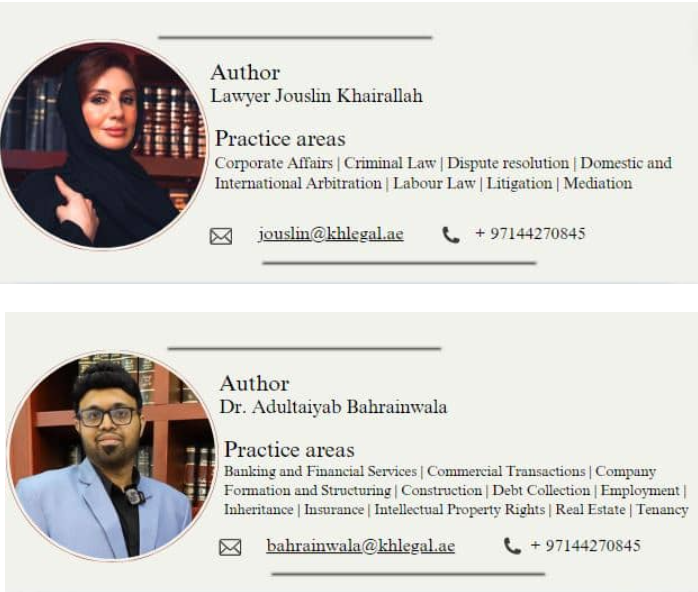Introduction
The United Arab Emirates (UAE) has solidified its position as a burgeoning hub for the global media industry, with an ever-increasing focus on digital transformation, journalism, entertainment, and advertising. However, operating within the country’s legal framework necessitates navigating a complex and evolving set of regulations governing press freedom, content creation, intellectual property, and online communication. This comprehensive legal guide explores how businesses, investors, and content creators can legally support and operate media companies in the UAE while ensuring strict compliance with the latest laws and regulations as of 2025.
Understanding UAE Media Laws: A Legal Perspective
Federal Decree Law No. (55) of 2023
The cornerstone of the UAE’s media regulatory framework is Federal Decree Law No. (55) of 2023, which came into effect in December 2023. This law provides a comprehensive legal framework for various media activities, including:
- Traditional broadcasting
- Print media
- Digital platforms
- Social media
- Gaming services
Key legal aspects of Federal Decree Law No. (55) of 2023 include:
a) Licensing Requirements:
- Mandatory licensing for all media activities, including those operating in free zones
- Specific licensing criteria for different types of media operations
- Renewal procedures and compliance audits
b) Content Standards:
- Legal obligation to respect UAE’s values, cultural sensitivities, and national interests
- Prohibition of content that may incite hatred, discrimination, or social unrest
- Strict regulations on the depiction of violence, sexuality, and religious content
c) Digital Media Regulations:
- Legal framework for emerging technologies in media (e.g., AI-generated content, virtual reality)
- Data protection and privacy requirements for digital media platforms
- Regulations on user-generated content and platform liability
d) Penalties and Enforcement:
- Graduated system of fines and penalties for non-compliance
- Provisions for suspension or revocation of media licenses
- Legal procedures for appealing regulatory decisions
UAE Media Council: Regulatory Authority
Established in February 2023, the UAE Media Council serves as the primary regulatory body for media activities nationwide. Its legal mandate includes:
- Issuing and revoking permits for media operations
- Overseeing content classification and age ratings
- Enforcing compliance with UAE media laws and regulations
- Investigating and adjudicating complaints against media entities
The council’s regulatory powers are derived from Federal Decree Law No. (55) of 2023 and subsequent executive regulations. Media entities must maintain ongoing compliance with the council’s directives and standards to operate legally within the UAE.
Dubai Media Council: Expanding the Regulatory Landscape
Law No. (29) of 2024: Enhanced Local Regulation
In December 2024, His Highness Sheikh Mohammed bin Rashid Al Maktoum, Vice President and Prime Minister of the UAE and Ruler of Dubai, issued Law No. (29) of 2024. This landmark legislation significantly expanded the powers and responsibilities of the Dubai Media Council, establishing it as the preeminent regulatory authority for media activities across Dubai, including:
- Special development zones
- Free zones (e.g., Dubai International Financial Centre)
- Mainland Dubai
Legal Implications of the Extended Mandate
The Dubai Media Council’s expanded mandate under Law No. (29) of 2024 encompasses:
Strategic Development:
- Legal authority to implement plans enhancing Dubai’s media sector
- Power to issue binding directives to media entities operating in Dubai
Pan-Emirate Coordination:
- Legal basis for coordinating media efforts across different emirates
- Authority to represent Dubai in national and international media forums
Competitive Positioning:
- Legal mandate to improve Dubai’s ranking as a global media hub
- Power to offer incentives and create specialized media zones
Dubai Media Permits Office: Streamlined Regulation
As a key component of Law No. (29) of 2024, the Dubai Media Permits Office was established under the Dubai Media Council. This entity has significant legal responsibilities:
1- Permit Issuance:
- The sole authority for issuing media activity permits in Dubai
- Legal power to set criteria and conditions for permit approval
2- Interagency Coordination:
- Statutory responsibility to coordinate with the Dubai Development Authority
- Legal basis for information sharing with other government entities
3- Operational Environment:
- Authority to create and enforce regulations for a seamless media operational environment
- Legal mandate to support Dubai’s innovation and excellence goals in the media sector
Influencer Licensing: Legal Framework for Social Media Marketing
Since 2018, the UAE has implemented a stringent legal framework requiring influencers who earn income from paid promotions on social media to obtain a license. This system is jointly
managed by:
- The National Media Council (NMC)
- Relevant local authorities (e.g., Dubai Media Council for influencers based in Dubai)
Key legal aspects of influencer licensing include:
1- Licensing Requirements:
- Mandatory licensing for all influencers earning from social media promotions
- Different categories of licenses based on follower count and engagement metrics
- Annual renewal requirements and compliance audits
2- Content Regulations:
- Legal obligation to disclose all paid partnerships and sponsored content
- Strict adherence to content guidelines set by regulatory bodies
- Prohibition on promoting certain products (e.g., tobacco, certain medical treatments)
3- Financial Compliance:
- The requirement to maintain financial records of all promotional activities
- Obligation to pay applicable taxes on influencer income
- Potential audits by tax authorities
4- Penalties for Non-Compliance:
- Fines for operating without a license or violating content guidelines
- Potential account suspension or blacklisting for repeated violations
- Legal liability for misleading or false advertising claims
Legal Compliance Strategies for Media Companies
To navigate the complex media laws in the UAE successfully and mitigate legal risks, companies should implement the following strategies:
1- Continuous Legal Education:
- Regularly update knowledge of UAE media laws and regulations
- Attend legal seminars and workshops on media law compliance
2- Comprehensive Licensing:
- Conduct a thorough audit of all media activities requiring licenses
- Implement a system for tracking license renewals and updates
3- Robust Content Review Process:
- Establish a multi-stage content review process involving legal experts
- Implement AI-powered content screening tools to flag potential legal issues
4- Dedicated Legal Counsel:
- Retain specialized legal counsel with expertise in UAE media law
- Establish a direct line of communication between content creators and legal advisors
5- Employee Training Programs:
- Develop comprehensive training modules on UAE media laws and ethical guidelines
- Conduct regular refresher courses and assessments for all staff involved in content creation
6- Compliance Monitoring and Reporting:
- Implement advanced monitoring systems to track compliance across all media platforms
- Establish clear reporting protocols for potential legal issues or violations
7- Data Protection and Privacy Compliance:
- Develop robust data protection policies in line with UAE laws
- Regularly audit data collection and storage practices
8- Crisis Management Protocol:
- Develop a detailed crisis management plan for potential legal challenges
- Conduct regular simulations to test and refine the protocol
Recent Legal Developments and Future Outlook
As of 2025, several key legal developments are shaping the UAE’s media landscape:
- Artificial Intelligence Regulations: New guidelines on the use of AI in content creation and distribution are expected to be released by the UAE Media Council in Q3 2025.
- Enhanced Data Localization Requirements: Stricter rules on data storage and processing within the UAE are under consideration, potentially affecting cloud-based media services.
- Cross-Border Content Regulations: Discussions are underway for a unified GCC approach to content regulation, which could impact international media companies operating in the UAE.
- Blockchain in Media: The Dubai Media Council is exploring regulations to govern the use of blockchain technology in media rights management and content distribution.
Conclusion
The UAE’s media landscape offers exciting opportunities for businesses and content creators, underpinned by a complex and evolving legal framework. By understanding and adhering to the country’s media laws, companies can thrive in this dynamic market while respecting local values and regulations.
Success in the UAE media sector requires more than creativity and innovation; it demands a commitment to legal compliance and ethical operations. Stay informed, seek expert legal guidance, and prioritize compliance to ensure long-term success and contribute positively to the UAE’s vibrant and rapidly evolving media industry.
Having said that, Contact Khairallah Advocates & Legal Consultants and benefit from our free 30-min legal consultation.
*Disclaimer: our blogs, law updates and FAQ’s are freely distributed for educational purposes and to showcase recent updates and regulations in the UAE’s framework.
If you have any questions and need assistance, contact us at our number or book an appointment online.






